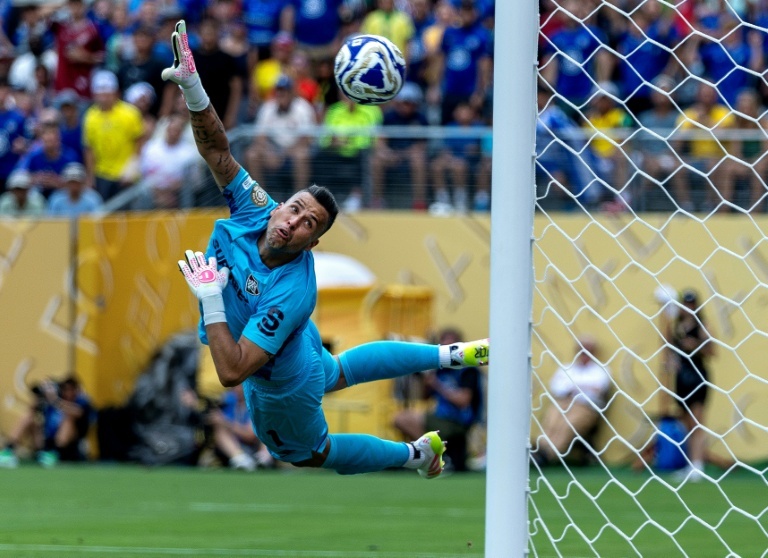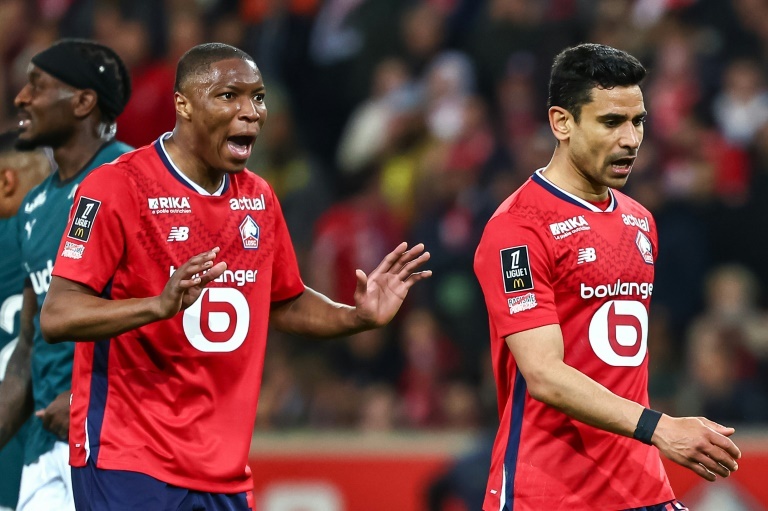Exploring Innovations, Revolutions, and Milestones in Football History

Football, or soccer as it's known in some parts of the world, has a rich and fascinating history that spans centuries.
1 year ago
From its origins in ancient ball games to the modern-day global phenomenon we know today, the sport has undergone numerous innovations, revolutions, and milestones that have shaped its evolution. In this comprehensive exploration, we'll delve deep into the various facets of football history, examining key developments, technological advancements, cultural impacts, and more.
The roots of football can be traced back to ancient civilizations such as the Greeks, Romans, and Chinese, who played various forms of ball games that involved kicking or passing a ball. These early iterations of the game laid the foundation for what would eventually become modern football. However, it was in England during the 19th century that football began to take shape as a codified sport with standardized rules. In 1863, the Football Association (FA) was formed, marking a significant milestone in the history of the sport. The FA established a set of rules known as the Laws of the Game, which provided a framework for organised football and laid the groundwork for the development of the sport on a national and international scale.
Ancient Origins: Football's roots in ancient civilizations such as Greece, Rome, and China.
Development in England: The role of England in codifying the rules of modern football through the establishment of the Football Association in 1863.
One of the most transformative developments in football history was the transition from amateurism to professionalism. In the early days of the sport, football was primarily played by amateur clubs and players who participated for the love of the olx88 game rather than financial gain. However, as the popularity of football grew and the demand for skilled players increased, clubs began to offer financial incentives to attract and retain talent. This led to the emergence of professional football clubs and leagues, marking a fundamental shift in the nature of the sport.
Transition to Professionalism: The shift from amateurism to professionalism in football clubs and leagues.
Impact on the Sport: The effects of professionalism on the development, commercialisation, and professionalisation of football.
Throughout its history, football has seen numerous tactical innovations that have revolutionised the way the game is played. From formations and strategies to pressing and possession, coaches and managers have continually sought new ways to gain a competitive advantage on the pitch. One of the most significant tactical innovations in football history was the introduction of the "WM" formation by legendary manager Herbert Chapman in the 1920s. The WM formation, characterised by its defensive solidity and attacking fluidity, revolutionised the way teams organised themselves on the pitch and laid the groundwork for modern tactical systems.
In the 1970s, Dutch footballing philosophy underwent a revolution with the emergence of "Total Football". Coaches such as Rinus Michels and Johan Cruyff pioneered a style of play that emphasised fluid movement, positional interchange, and collective pressing. Total Football had a profound influence on the tactical landscape of the game, inspiring generations of coaches and players to adopt a more dynamic and proactive approach to football.
Historical Tactical Innovations: The introduction of tactical systems such as the WM formation and Total Football.
Modern Tactical Trends: Contemporary tactical approaches such as high-pressing and possession-based football, driven by advancements in technology and analytics.
Goal-line technology represents one of the most significant technological advancements in football history. Introduced in the early 2010s, goal-line technology uses a combination of cameras and sensors to determine whether the ball has crossed the goal line. The implementation of goal-line technology has put an end to contentious goal-line disputes, providing referees with definitive evidence to make accurate decisions in crucial moments. By instantly alerting officials when the ball crosses the goal line, goal-line technology ensures that correct decisions are made and eliminates the possibility of human error.
Functionality and Implementation: How goal-line technology works and its practical application in football matches.
Impact on Officiating: The effects of goal-line technology on refereeing decisions and match outcomes.
Video Assistant Referee, or VAR, is another technological innovation that has had a profound impact on football. Introduced to top-level competitions in recent years, VAR allows match officials to review key decisions, such as goals, penalties, and red card incidents, with the assistance of video replays. VAR operates on the principle of "clear and obvious errors", whereby match officials can only overturn a decision if there is clear evidence to suggest that it was incorrect. The VAR system consists of a team of officials who monitor the match from a centralised video operations room and communicate with the on-field referee via headset.
Application and Procedures: How VAR is implemented in football matches and the process of reviewing decisions using video replays.
Criticism and Controversies: The debates surrounding VAR, including concerns over its impact on the flow of the game and the consistency of decision-making.
Football is more than just a sport – it's a global phenomenon that transcends geographical, cultural, and social boundaries. From the favelas of Brazil to the streets of Africa, football unites people from all walks of life, regardless of nationality, ethnicity, or background. The FIFA World Cup stands as the pinnacle of global football, capturing the imagination of billions of viewers around the world. Held every four years, the World Cup brings nations together in celebration of the beautiful game, showcasing the universal appeal and power of football to unite and inspire.
World Cup Legacy: The significance of the FIFA World Cup as a global sporting event and cultural phenomenon.
Global Reach: Football's impact on diverse communities and cultures around the world, from grassroots initiatives to international tournaments.
In recent decades, football has made significant strides in promoting diversity and inclusion within the sport. Initiatives such as anti-racism campaigns, LGBTQ+ inclusivity programmes, and efforts to increase female participation have helped foster a more inclusive and equitable footballing community. Football has the power to break down barriers, challenge stereotypes, and promote understanding and acceptance among people of different backgrounds and identities. By embracing diversity and championing inclusivity, football is not only enriching the sport but also contributing to broader social progress and cohesion.
Inclusive Initiatives: Examples of programmes and campaigns aimed at promoting diversity and inclusion in football.
Social Impact: The broader implications of football's role in fostering social cohesion, tolerance, and acceptance.
Football has come a long way since its humble beginnings, evolving into a global phenomenon that captivates the hearts and minds of billions of people around the world. From innovations in gameplay and technological advancements to cultural impacts and social progress, the sport continues to evolve and adapt, driven by a passion for the game and a commitment to excellence. As we reflect on the history of football, we are reminded of the power of sport to inspire, unite, and transcend boundaries. Whether on the pitch, in the stands, or on our screens, football remains a beautiful and enduring expression of human skill, creativity, and passion. As we look to the future, let us celebrate the rich tapestry of football history and embrace the opportunities and challenges that lie ahead in the ever-evolving world of the beautiful game.
The roots of football can be traced back to ancient civilizations such as the Greeks, Romans, and Chinese, who played various forms of ball games that involved kicking or passing a ball. These early iterations of the game laid the foundation for what would eventually become modern football. However, it was in England during the 19th century that football began to take shape as a codified sport with standardized rules. In 1863, the Football Association (FA) was formed, marking a significant milestone in the history of the sport. The FA established a set of rules known as the Laws of the Game, which provided a framework for organised football and laid the groundwork for the development of the sport on a national and international scale.
Ancient Origins: Football's roots in ancient civilizations such as Greece, Rome, and China.
Development in England: The role of England in codifying the rules of modern football through the establishment of the Football Association in 1863.
One of the most transformative developments in football history was the transition from amateurism to professionalism. In the early days of the sport, football was primarily played by amateur clubs and players who participated for the love of the olx88 game rather than financial gain. However, as the popularity of football grew and the demand for skilled players increased, clubs began to offer financial incentives to attract and retain talent. This led to the emergence of professional football clubs and leagues, marking a fundamental shift in the nature of the sport.
Transition to Professionalism: The shift from amateurism to professionalism in football clubs and leagues.
Impact on the Sport: The effects of professionalism on the development, commercialisation, and professionalisation of football.
Throughout its history, football has seen numerous tactical innovations that have revolutionised the way the game is played. From formations and strategies to pressing and possession, coaches and managers have continually sought new ways to gain a competitive advantage on the pitch. One of the most significant tactical innovations in football history was the introduction of the "WM" formation by legendary manager Herbert Chapman in the 1920s. The WM formation, characterised by its defensive solidity and attacking fluidity, revolutionised the way teams organised themselves on the pitch and laid the groundwork for modern tactical systems.
In the 1970s, Dutch footballing philosophy underwent a revolution with the emergence of "Total Football". Coaches such as Rinus Michels and Johan Cruyff pioneered a style of play that emphasised fluid movement, positional interchange, and collective pressing. Total Football had a profound influence on the tactical landscape of the game, inspiring generations of coaches and players to adopt a more dynamic and proactive approach to football.
Historical Tactical Innovations: The introduction of tactical systems such as the WM formation and Total Football.
Modern Tactical Trends: Contemporary tactical approaches such as high-pressing and possession-based football, driven by advancements in technology and analytics.
Goal-line technology represents one of the most significant technological advancements in football history. Introduced in the early 2010s, goal-line technology uses a combination of cameras and sensors to determine whether the ball has crossed the goal line. The implementation of goal-line technology has put an end to contentious goal-line disputes, providing referees with definitive evidence to make accurate decisions in crucial moments. By instantly alerting officials when the ball crosses the goal line, goal-line technology ensures that correct decisions are made and eliminates the possibility of human error.
Functionality and Implementation: How goal-line technology works and its practical application in football matches.
Impact on Officiating: The effects of goal-line technology on refereeing decisions and match outcomes.
Video Assistant Referee, or VAR, is another technological innovation that has had a profound impact on football. Introduced to top-level competitions in recent years, VAR allows match officials to review key decisions, such as goals, penalties, and red card incidents, with the assistance of video replays. VAR operates on the principle of "clear and obvious errors", whereby match officials can only overturn a decision if there is clear evidence to suggest that it was incorrect. The VAR system consists of a team of officials who monitor the match from a centralised video operations room and communicate with the on-field referee via headset.
Application and Procedures: How VAR is implemented in football matches and the process of reviewing decisions using video replays.
Criticism and Controversies: The debates surrounding VAR, including concerns over its impact on the flow of the game and the consistency of decision-making.
Football is more than just a sport – it's a global phenomenon that transcends geographical, cultural, and social boundaries. From the favelas of Brazil to the streets of Africa, football unites people from all walks of life, regardless of nationality, ethnicity, or background. The FIFA World Cup stands as the pinnacle of global football, capturing the imagination of billions of viewers around the world. Held every four years, the World Cup brings nations together in celebration of the beautiful game, showcasing the universal appeal and power of football to unite and inspire.
World Cup Legacy: The significance of the FIFA World Cup as a global sporting event and cultural phenomenon.
Global Reach: Football's impact on diverse communities and cultures around the world, from grassroots initiatives to international tournaments.
In recent decades, football has made significant strides in promoting diversity and inclusion within the sport. Initiatives such as anti-racism campaigns, LGBTQ+ inclusivity programmes, and efforts to increase female participation have helped foster a more inclusive and equitable footballing community. Football has the power to break down barriers, challenge stereotypes, and promote understanding and acceptance among people of different backgrounds and identities. By embracing diversity and championing inclusivity, football is not only enriching the sport but also contributing to broader social progress and cohesion.
Inclusive Initiatives: Examples of programmes and campaigns aimed at promoting diversity and inclusion in football.
Social Impact: The broader implications of football's role in fostering social cohesion, tolerance, and acceptance.
Football has come a long way since its humble beginnings, evolving into a global phenomenon that captivates the hearts and minds of billions of people around the world. From innovations in gameplay and technological advancements to cultural impacts and social progress, the sport continues to evolve and adapt, driven by a passion for the game and a commitment to excellence. As we reflect on the history of football, we are reminded of the power of sport to inspire, unite, and transcend boundaries. Whether on the pitch, in the stands, or on our screens, football remains a beautiful and enduring expression of human skill, creativity, and passion. As we look to the future, let us celebrate the rich tapestry of football history and embrace the opportunities and challenges that lie ahead in the ever-evolving world of the beautiful game.







Comments